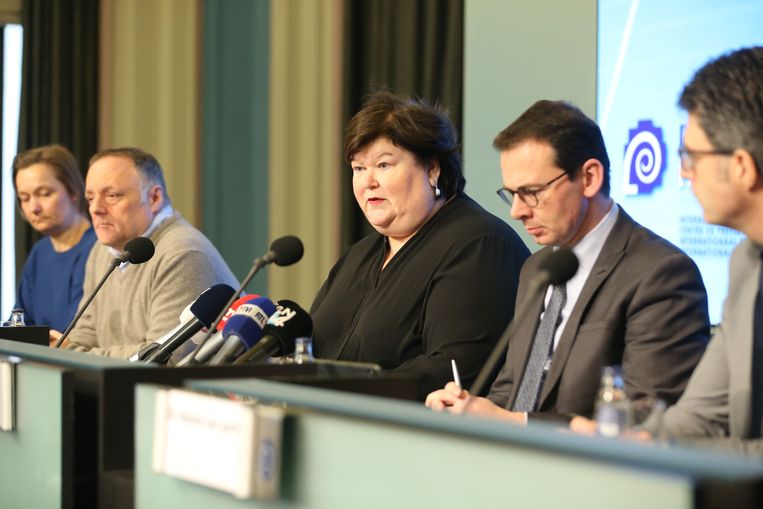The containment measures should not be tightened to stop the further spread of the new coronavirus (Covid-19), according to Federal Minister for Public Health Maggie De Block.
Belgium must keep following the measures that are already in place, as it is still too early to know the evolution of the number of new infections and hospitalisations, De Block said in an interview with RTBF.
"We knew that we have to wait 8 to 10 days to see if the measures are effective," she said, repeating that it is very important that everyone follows the measures in place, takes care of themselves and reduces their contacts to avoid too many patients in the hospitals at the same time.
Whether or not the lockdown measures will be extended, will be decided at the National Security Council on Friday, which will "take into account the advice of specialists and scientists," De Block said. "The experts make an assessment of all measures, as well as of what is happening in the hospitals," she said, adding that this analysis is needed before decisions can be made.
"I am in regular contact with our Sciensano Institute and the analysts, and I think we have to be very careful when we stop the containment measures. Like in China, once the number of patients in our hospitals has stabilised, we will have to move very gradually towards a return to normal," De Block said. "But first we need that assessment tomorrow," she added.
Related News
- Coronavirus: Belgium will not take patients from abroad
- New coronavirus total 'not as bad as it seems,' says Belgian virologist
- Coronavirus: Belgium develops 15-minute virus test
On Wednesday, the Belgian Association of Medical Unions (ABSyM) criticised the Belgian authorities for their failure to comply with the World Health Organisation (WHO) international guidelines, and the shortage of protective equipment, reports La Libre.
"Many people working in the health sector, including doctors, have undoubtedly been contaminated due to the severe shortage of protective equipment," said ABSyM, adding that "doctors may contaminate their patients without being aware of it," as health care workers are only being screened for fever and chronic respiratory symptoms.
"Across the country, it's the same problem, we do not have enough resources to do widespread testing," said De Block. "Other kinds of tests are now being looked into by my colleague Philippe De Backer, tests based on the reaction of antibodies," she added. De Backer is in charge of the Covid-19 testing task force, which was set up by De Block last week.
The problem of false negatives is being dealt with, according to her, and then about 10,000 people a day will be able to get tested. "And of course, as a priority, the medical professionals, who are in very close contact with the patients."
On Monday, it was revealed that millions of FFP2 masks, which are short in supply worldwide, had been destroyed because they had reached their expiration date and had become "unusable."
To avoid such scenarios happening again, De Block said that she preferred the principle of a rotating stockpile, part of which would be regularly placed on the market to avoid equipment. "Buying masks without a plan is a waste of taxpayers' money," she added.
Maïthé Chini
The Brussels Times

